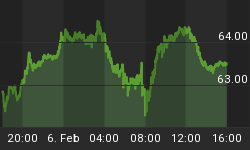There is an eternal debate among various experts as to when globalization actually started; whether it was with the Silk Road, the Vikings, Columbus's voyage, or even before then, with the earliest human migratory routes.
Now, it’s no longer relevant when it started. Instead, the new question is whether Russian President Vladimir Putin will end it.
Russia’s war on Ukraine and the Western sanctions that necessarily followed, could have a lasting impact on globalization, a process that regardless of when the first seeds were planted, really became entrenched a few decades ago.
Globalization was under attack on some level prior to Putin’s invasion of Ukraine. Most significantly, the global pandemic let us all see very clearly the vulnerabilities, especially with supply chains and our dependence on their global nature.
Now, everyone is desperately calling for “independence”, whether it is of energy or other resources.
In Q2 2020, at the dramatic start of the pandemic, global trade was down 18.5%, compared to the same period the previous year.
Since then, the global economy has started to recover, only to be hit again by a war on the European continent–a war that could shake the balance of power.
Larry Fink, CEO of BlackRock, the world's largest asset manager, thinks we are now seeing the beginning of the end of globalization.
In a letter to shareholders, Fink wrote that Russia's "decoupling from the global economy" following its assault on Ukraine has caused governments and companies to examine their reliance on other nations.
"The Russian invasion of Ukraine has put an end to the globalization we have experienced over the last three decades," Fink wrote.
For its part, BlackRock, which oversees more than $10 trillion, has already suspended the purchase of any Russian securities in its active or index portfolios.
Oaktree Capital Management founder Howard Marks shares Fink’s opinion, even if his take is less dramatic. He is warning investors that countries are going to start a major push to return to localized sourcing.
“Rather than the cheapest, easiest and greenest sources, there’ll probably be more of a premium on the safest and surest,” Marks said.
St. Louis Federal Reserve President James Bullard seems something similar. The direct macroeconomic effects on the US economy from Russia's invasion are not that large, Bullard says, but “Russia's war will mean less globalization, more fragmentation around the world.”
Aside from oil and gas, Russia is one of the world's largest suppliers of metals. Currently, governments and large corporations that imposed sanctions on Russia are now scrambling to obtain alternative supplies. Supplies in turn are tightening, resulting in dramatic upward price swings and costs that are passed on to consumers.
The pandemic, along with geopolitical tensions with China and a US-China trade battle, had already driven many businesses to explore bringing their operations and relevant input materials closer to home, including some attempts to reverse the outsourcing of manufacturing.
Inter-dependence, however, is so great and so entrenched, that it will take just as long to undo globalization as it took to build it in the first place–unless it’s simply forced apart by war.
Semiconductors, which are undergoing a supply squeeze amid soaring demand, are a case in point. For two years the American auto industry has been suffering from this shortage and dependence on Asia hasn’t been sufficiently addressed, with efforts just now getting underway to secure domestic supply.
Now, Intel, the largest chipmaker in the United States, has announced (only recently) that it will spend $20 billion to build two semiconductor factories at home, but they won’t begin production until 2025.
Several automakers and battery manufacturers are also planning to make dozens of new electric vehicle battery factories in the United States within the next five years.
Similar announcements have been made recently in the solar and biotech industries.
Three decades ago, the US produced about 37% of the world's semiconductors, compared to 12 percent nowadays. Profit got in the way of strategic planning here. Cheap costs were chosen over independence, and that is the sacrifice of globalization.
















